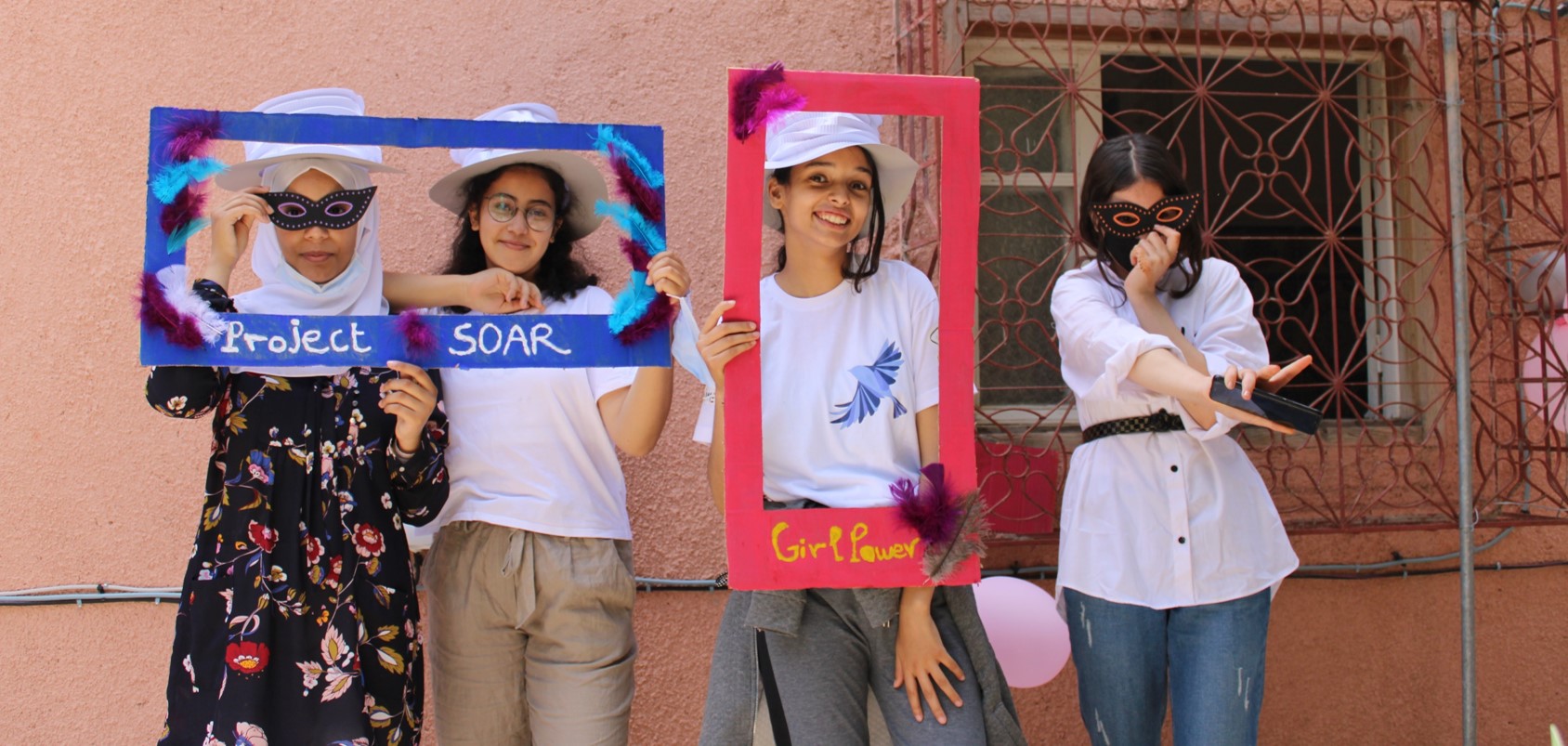
Mission
Project Soar’s mission is to empower marginalized teen girls to become the leaders of today and tomorrow.
Life Challenges of the Women Served
Moroccan teen girls are at high risk of underage marriage, which makes them vulnerable to dropping out of school, early motherhood, and gender-based violence. COVID-19 has worsened the situation. In 2019, 32,000 requests for marriage to minor girls were issued, making it one of the country’s primary challenges. In 2020, 14 percent of girls married underage. Although recent laws were amended to stop child marriage, legal loopholes persist, curtailing girls’ participation in school and limiting their prospects for careers.
The World Economic Forum’s Global Gender Gap ranked Morocco 143 out of 153 countries in 2020. Younger women and girls bear the brunt of the unfortunate brutality: 59 percent of Moroccan women and girls ages 15 to 24 have been victims of psychological, physical, or gender-based violence, compared to 16 percent for women ages 55 to 74.
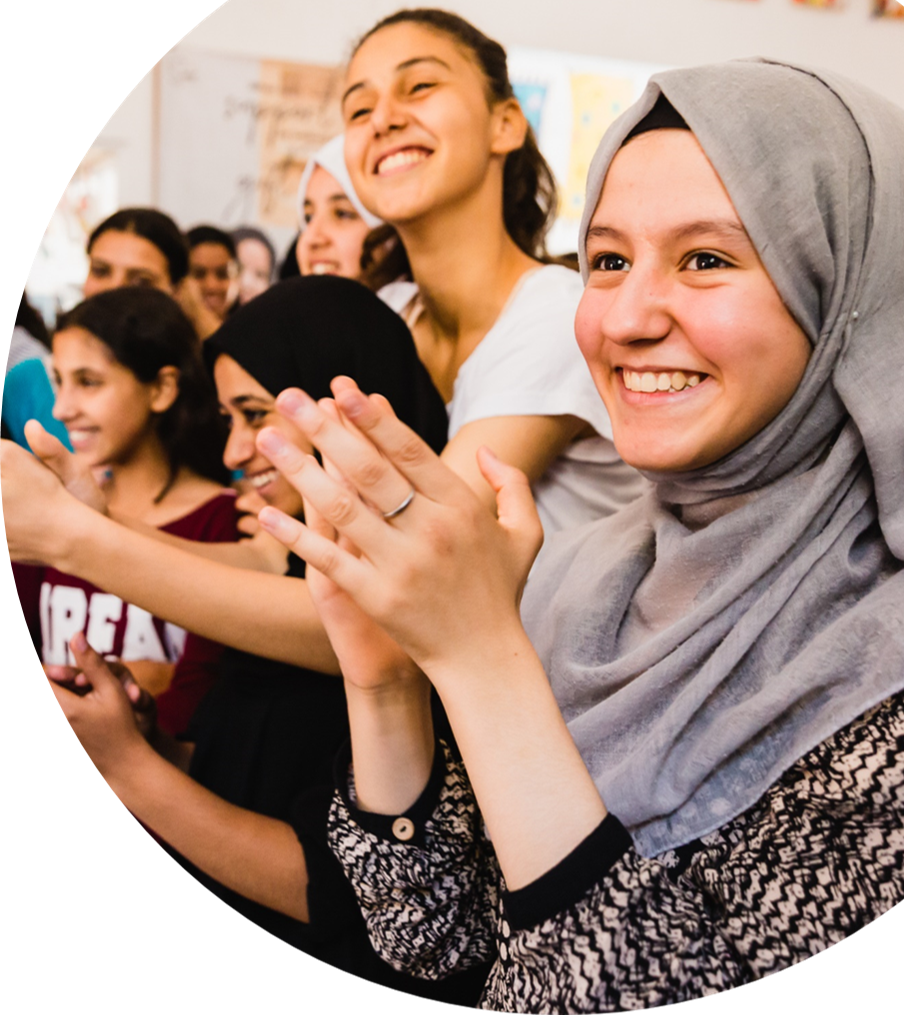 There are three primary factors causing the high rate of underage marriages in rural Morocco:
There are three primary factors causing the high rate of underage marriages in rural Morocco:
- Sociocultural Factors: Traditional cultural norms are a major contributing factor in the female youth disparity in Morocco. Families play a key role in shaping young people’s value systems, including their goals and attitudes towards education and work. Girls from marginalized areas tend to experience pressure from families to carry on traditional customs and gender norms. For instance, Moroccan girls ages 7 to 14 spend 3.4 more time than boys on chores. Parents and other family members often rush daughters to work unskilled jobs with low pay or arrange marriage during adolescence. Most parents are ill equipped to advise their children on school and career choices and cannot provide them with the additional support or knowledge needed to succeed in a new market economy environment. This is reflected in the level of education attained: only 53 percent of middle school students go on to high school and less than 15 percent of first grade students are likely to graduate from high school. Twenty-six percent of girls in rural Morocco attend school versus 79 percent of boys.
- Economic Factors: Poverty is a key driver of child marriage. As of 2014, 19 percent of the rural Moroccan population was living in poverty or vulnerable. As many as 15.5 percent live on $3.10 a day or less. The urban-rural gap remains large. Many families in marginalized areas cannot afford to keep girls in school because of related costs of clothes, books, etc. Many girls living below the poverty line do not attend school for days each month because families are unable to afford menstrual hygiene supplies, causing them to fall behind or drop out of school. Additionally, there is still a labor bias towards women working in the domestic and informal spheres. For example, less than 10 percent of rural women work outside the home.
- Political Factors: Despite significant obstacles, women’s mobilization in Morocco has brought relatively high levels of rights and political inclusion compared to women elsewhere in the Middle East and North Africa region (except for Tunisia). However, the rise of Islamist movements after the Arab Spring challenged women’s demands for rights, undermined elite support for reform and
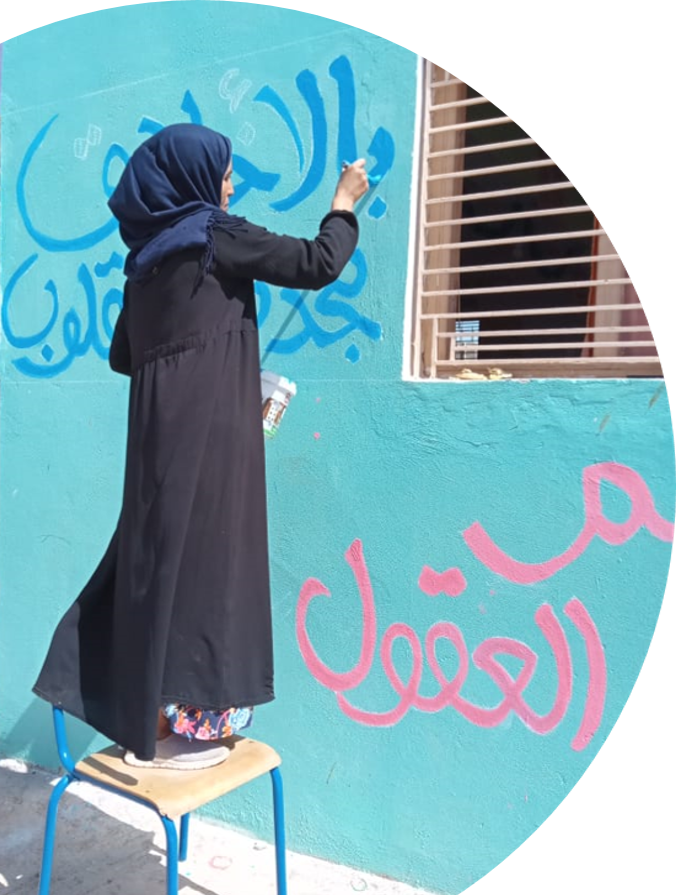 created a powerful narrative against women’s rights. In fact, the street protests of 2011 and the deeper reforms that have followed had particularly paradoxical outcomes for women in recent years. While constitutional reforms enshrined women’s equality and initiated institutional mechanisms to protect their rights, the governing political party in Morocco, the Justice and Development Party (PJD), derives part of its political identity from its Islamic orientation, with conservative ideology regarding women and girls’ traditional roles. The PJD does not espouse feminism or progressive interpretations of gender equity.
created a powerful narrative against women’s rights. In fact, the street protests of 2011 and the deeper reforms that have followed had particularly paradoxical outcomes for women in recent years. While constitutional reforms enshrined women’s equality and initiated institutional mechanisms to protect their rights, the governing political party in Morocco, the Justice and Development Party (PJD), derives part of its political identity from its Islamic orientation, with conservative ideology regarding women and girls’ traditional roles. The PJD does not espouse feminism or progressive interpretations of gender equity.
While the feminist movement is robust in Morocco, it is led by French-speaking, middle-aged women in upper middle class urban areas, primarily Casablanca and Rabat. The movement has little representation from teen girls, Arabic-speaking females, or working-class women. The feminist movement has focused on changing laws, rather than culture, with limited means or interest in engaging the grassroots. Additionally, the movement has become politicized and fragmented, with factions having strong connections to political parties.
The Project
Project Soar’s (PS) single focus is supporting teen girls in the most marginalized communities. The Girls Soar in Morocco (GSM)’s Leadership Training Program for Marginalized Teen Girls will help 200 vulnerable girls stay in school, avoid child marriage, and gain skills for future employment. This program enhances girls’ leadership skills through the establishment of empowerment workshops and Girl Leader Clubs (GLC). It helps girls overcome cultural barriers, lack of parental knowledge, and financial constraints. It also proves that putting girls on a productive path and freeing them from violence, teen pregnancy, and child marriage helps lift them and their families out of poverty.
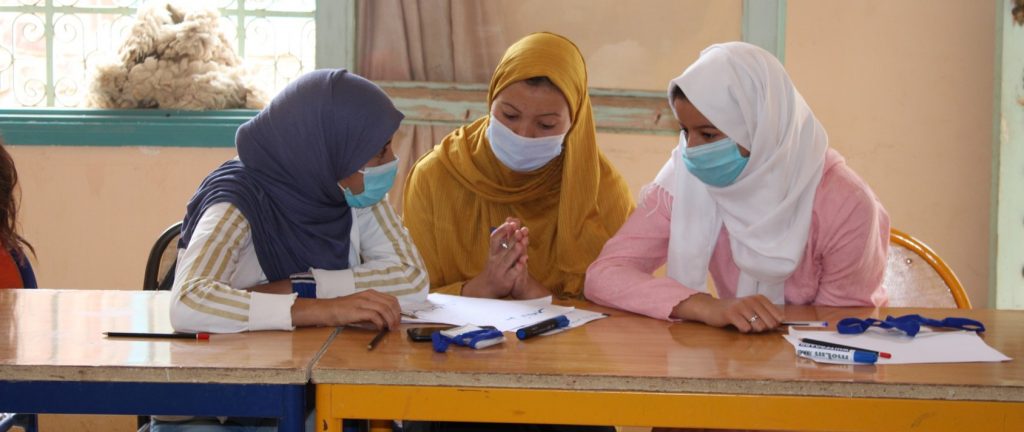
Project Soar works. According to data collected in 2020 from 675 PS girls across 40 locations in Morocco:
- In 2020, 88 percent of PS girls went on to higher education (university or vocational school), a 41 percent increase over the national rate of 53 percent.
- PS girls are 100 percent less likely to become child brides than Morocco’s national average.
- PS graduates enjoy improved school outcomes and exam performance.
- PS girls develop key soft skills that employers seek, including planning, leadership, goal-setting, confidence, problem solving, teamwork, and public speaking.
- Less than one percent of PS participants drop out of school, compared to the national rate of 21 percent.
- Less than one percent of PS girls were married underage compared to the national child marriage rate of 14 percent.
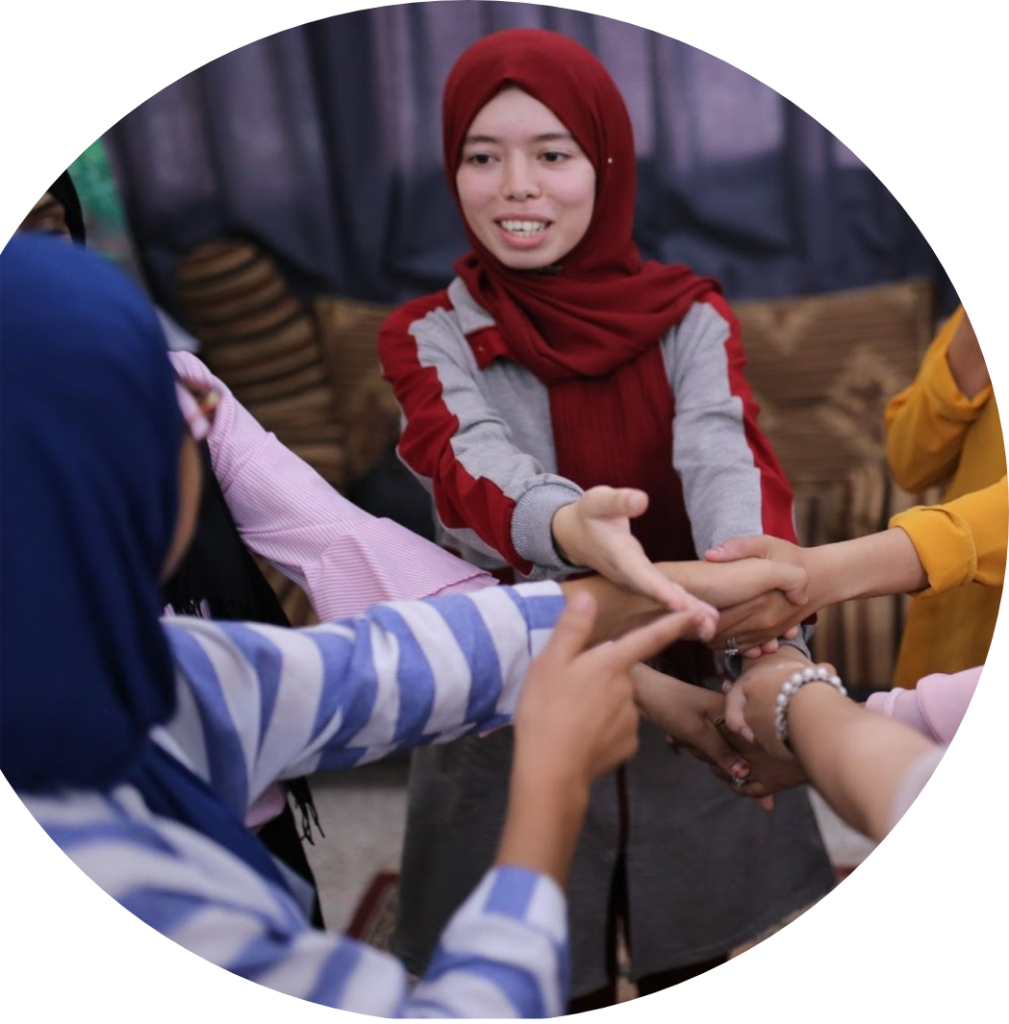 GSM will directly benefit 220 women and girls: 200 public schoolgirls plus 20 women facilitators. The expectation is that there will be 330 indirect beneficiaries. PS estimates that each girl and facilitator will share information with 3+ people in their families, communities, youth houses, or schools, and that 220 of these beneficiaries will be women and girls.
GSM will directly benefit 220 women and girls: 200 public schoolgirls plus 20 women facilitators. The expectation is that there will be 330 indirect beneficiaries. PS estimates that each girl and facilitator will share information with 3+ people in their families, communities, youth houses, or schools, and that 220 of these beneficiaries will be women and girls.
PS doesn’t believe in quick fixes. It provides a holistic program that helps girls realize their potential and forge their own paths. PS’s award-winning curriculum encourages girls to use new learned skills in their daily lives and to prepare for productive futures. The five key components of the Girls Soar Morocco (GSM) program are:
- Facilitator training: PS trains two facilitators at each of the 10 locations in the PS methodology. These facilitators gain at least one year of experience leading the empowerment workshops with girl squads in their communities. PS provides refresher training and distributes portable kits called Project Soar in a Box (PSB) bags prior to program launch. These bags on wheels contain the curriculum and supplies needed to empower a group of teen girls at each site. PSBs are assembled at PS headquarters.PS facilitators are local women who come from the communities they serve. PS values facilitator feedback, which is gathered continuously through surveys and weekly check-ins. Feedback is collected from the PS facilitators after each PS workshop and module and reviewed by PS coordinators.
- Finding participants: Teen girls are recruited by the facilitators. They must be between 13 – 18 years old, attend school, and have parental permission/commitment. The average PS girl is among the most marginalized in Morocco – living in extreme poverty. She lives in an underserved community where conservative customs create barriers to her empowerment. Her father has a primary school education or less, is a day laborer or farmer, and is supporting four children and a wife on $165 per month. Her mother is almost always a housewife. Illiterate or with very limited education, parents of PS girls are typically unable to help their children with homework.
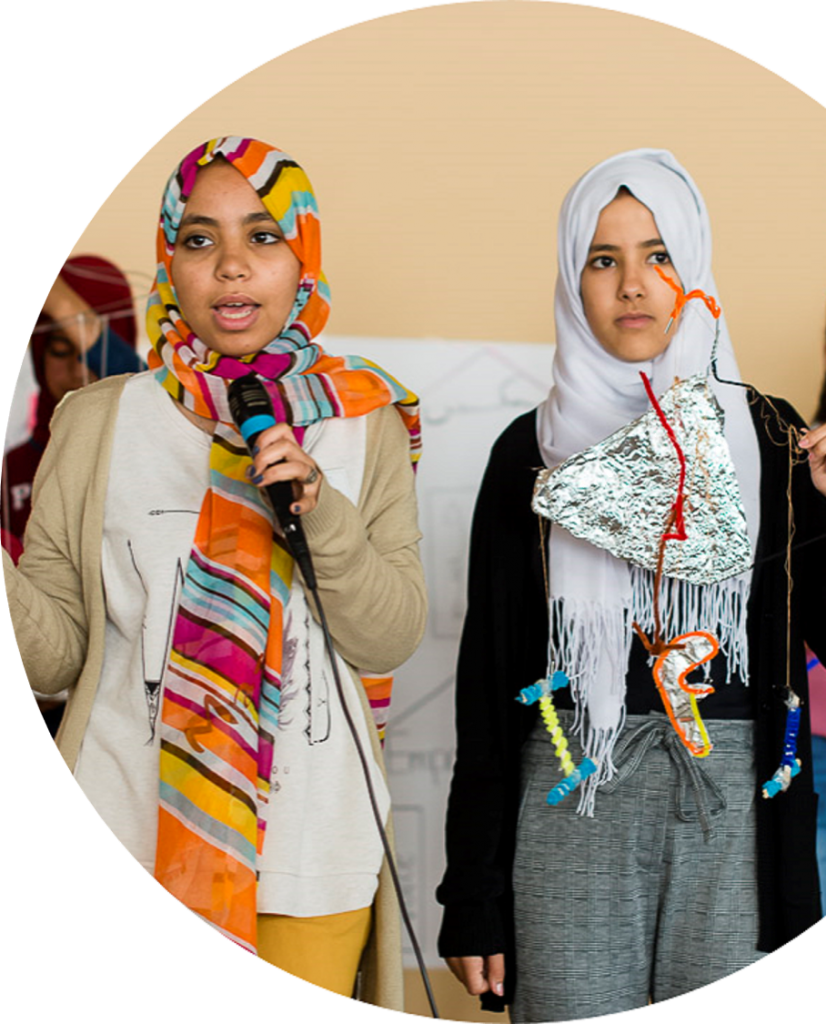 Registration: PS facilitators register 20 new teen girls at each of GSM’s 10 target sites, for a total of 200 girls. Signed parental permission forms and waivers are required for registration. All parents of PS girls must sign a pledge to keep their daughters in school – a critical commitment, given high rates of school dropouts among marginalized communities in this area.
Registration: PS facilitators register 20 new teen girls at each of GSM’s 10 target sites, for a total of 200 girls. Signed parental permission forms and waivers are required for registration. All parents of PS girls must sign a pledge to keep their daughters in school – a critical commitment, given high rates of school dropouts among marginalized communities in this area.- PS Empowerment Workshops: After an orientation, the girls take part in a series of 25 weekly workshops that help them understand their Value, Voice, Body, Rights, and Path – the PS 5 Pillars of Girls’ Empowerment. As a PS girl progresses through each module, she undergoes a transformative process whereby she develops her self-confidence. She speaks up, embraces her adolescent body, fights for her rights, and sets future goals. PS helps catalyze unlearning of the normalization of violence against girls and instill the notion that “enough is enough.”The signature PSB empowerment curriculum has been built on the feedback of PS facilitators, who run the workshops in Arabic and Darija. They have been trained and have experience successfully running PS in the GSM target sites. They have experience with youth, respect within target communities, and a passion for social justice and equity.GSM workshops follow a series of rituals that help optimize the adolescent brain. Research shows that teen girls find comfort and growth in a structured atmosphere that provides for both predictability (safety) as well as creativity. Accordingly, each workshop incorporates the same set of rituals to explore a new topic: opening circle, affirmations and education, activity, meditation/visualizations, journaling, and closing circle.
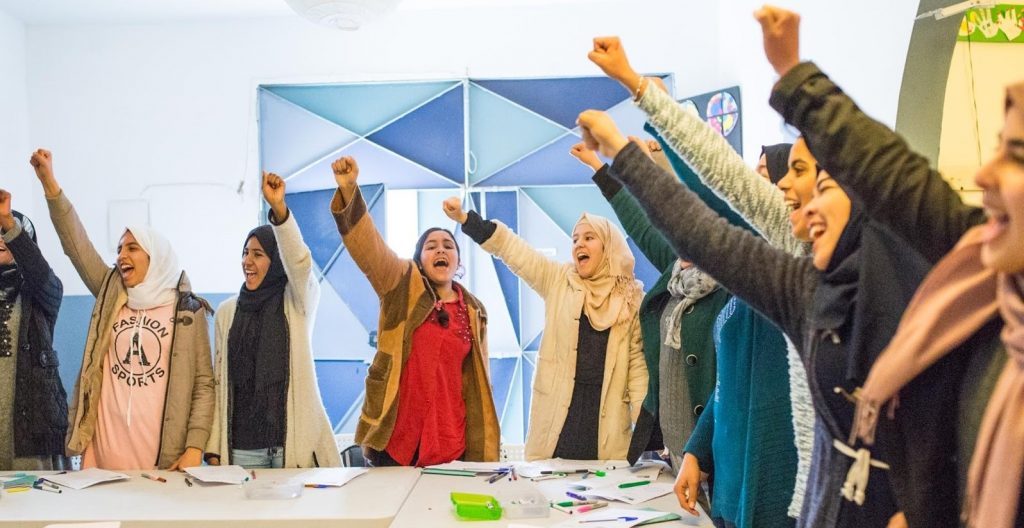
- Girl Leaders Clubs (GLCs): Girl-led and facilitator-mentored, GLCs offer a safe space for girls to practice the leadership skills they learned in the empowerment curriculum. GLCs are guided by a GLC toolkit, which offers formats for girls to choose their goals, plan their activities, and report on activities in an organized way. Each club elects four GLC officers: President, Vice President, Coordinator, and Communicator. Typically, GLCs meet after school once a month over the academic year. Established GLCs have a new stream of girl members each year, allowing clubs to be constantly refreshed as girls move on to higher education or other opportunities. There are 10 GLCs activated under GSM. Given Morocco’s conservative environment, single-sex clubs have more parental support.The GLCs are at the heart of PS’s sustainability strategy. Once GLCs are established in a target community and PS Girl graduates become facilitators, the program is self-sustaining after five years. The GLC is PS’s approach to sustaining girl-led and girl-owned leadership in the long-term.
PS is a data-driven organization. It tracks its impact, both qualitatively and quantitatively. GSM will actively incorporate Measurement and Evaluation into the program, tracking project inputs, outputs and impact. Internal data collection will take place monthly, with inputting into the PS customized database system and reporting on a quarterly basis. Final reporting and evaluation will take place during the final month of the program and will include lessons learned and program beneficiary feedback. Materials and curricula will be updated based on feedback.
PS maintains key partnerships, including the Moroccan Ministry of Youth and Sports, which provides credibility, government protection, and troubleshooting nationwide. Through its partnership with Dar Chebabs/Youth Houses, PS has guaranteed access to a network of government Youth Houses across the country that provide free safe space for GSM activities. PS also has a strategic partnership with the United Nations Population Fund (UNFPA) Morocco to promote menstrual rights for teen girls. PS co-held the first national menstrual rights event with key Moroccan ministries on the Rights and well-being of adolescent girls in public policies in Morocco. This launched a nationwide advocacy campaign to combat period poverty and dispel misconceptions about menstruation. PS also partners with the El Khair Association for People with Disabilities to pilot the PSB program for girls with a wide range of disabilities, developmental delays, and neurodivergence.
Direct impact: 220, Indirect impact: 660
UN Sustainable Development Goals
![]()
![]()
![]()
Questions for Discussion
- In addition to the Girl Leaders Clubs, what else about this program makes it sustainable?
- As the girls become more confident and self-assured, how does it change others around them, their families, and the broader community?
- How might a facilitator become a mentor? How do you think mentorship contributes to systemic change?
How the Grant Will be Used
Together Women Rise’s grant of $50,000 will help fund the following:
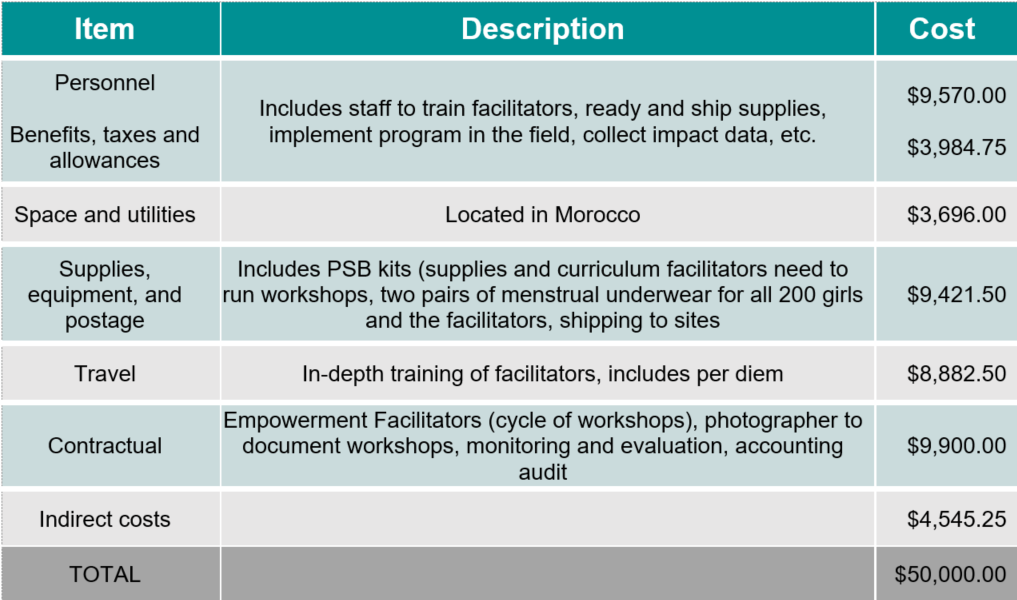
Why We Love This Project/Organization
The Project Soar Solution is a holistic, rights-based approach to propel young girls to forge their own path and soar. Its unique, 25-workshop empowerment curriculum focuses on five modules: Value, Voice, Body, Rights, and Path. The focus on helping marginalized teen girls, some with disabilities, to become their own change agents has been highly successful in challenging gender norms, overcoming barriers to higher education, and creating the leaders of tomorrow.
Evidence of Success
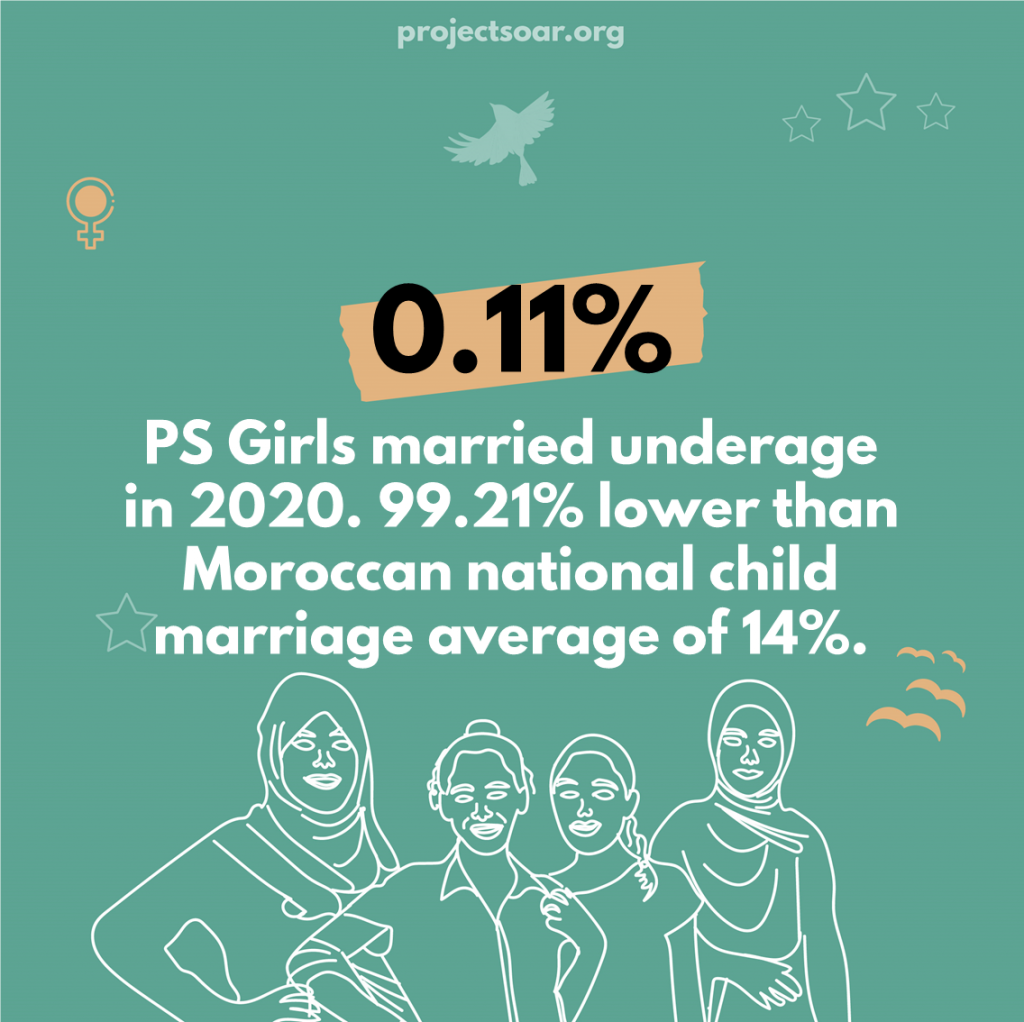 The Project Soar Solution has been recognized and lauded by a wide variety of individuals and organizations.
The Project Soar Solution has been recognized and lauded by a wide variety of individuals and organizations.
- It was recognized by Michelle Obama, and PS coordinators and beneficiaries were invited to the White House.
- In 2018, founder and Executive Director Maryam Montague shared the Project Soar Solution with organizations and girls’ rights defenders at the Girls Not Brides Global Meeting in Malaysia. PS was positioned as an organization “working to combat early marriage and motherhood in Morocco.”
- PS was referenced in “We Will Rise,” CNN’s girls’ empowerment documentary.
- The New York Times’ Saturday Profile section featured the PS founder in an article entitled, “Empowering Teenage Girls in a Traditional Village and Across Morocco.”
- In January 2020, PS became a large category winner of the With and For Girls Awards. This award recognizes “exceptional local organizations working on the frontlines to create a world where girls’ rights and wellbeing are recognized, respected and realized.”
- In 2020, the PS founder was named an Ashoka Fellow for developing a solution for one of the world’s most pressing problems.
The Moroccan government has reviewed and approved the PS curriculum and invited PS to become an Association of Public Utility because of its strong results-driven performance.
Voices of the Girls
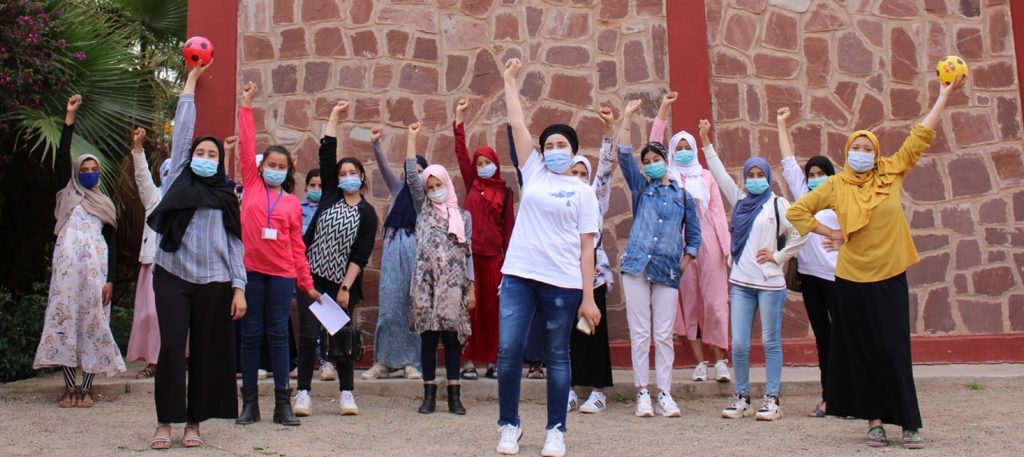 “My thoughts, behavior, and studies have totally changed since Project Soar. I started thinking positively rather than negatively. I started applying myself more in school, which has resulted in better grades.” – Salma, age 15 (PS Girl 2020/2021)
“My thoughts, behavior, and studies have totally changed since Project Soar. I started thinking positively rather than negatively. I started applying myself more in school, which has resulted in better grades.” – Salma, age 15 (PS Girl 2020/2021)
“I was having trouble playing sports. I was always worried that I would have leaks if I did certain moves. However, now I can say that the Be Girl period kit that Project Soar provided me in Module 3: Body helped me to somehow face this fear and live a normal life.” – PS Girl
“I don’t want to marry him!” Dounia begged. Her family’s response: months of isolation. “They were entirely against my decision,” she explained: “My mom never spoke to me, my brother and father acted as if I didn’t exist, and even my younger sister told me to marry him!” Dounia wanted to stay in school and continue her education. She didn’t want to become a child bride. “I didn’t know how long I could last before I was married…My relationship with my family was horrible. I was lonely, and I didn’t know what to do. It was then I found Project Soar.”– PS Girl 2019/2020)
(At PS, Dounia learned about the law and her right to be free from early or forced marriage. Dounia’s relationship with her family has improved so much since she became a PS Girl. She challenges her parents to understand and respect her choices. With PS support, Dounia has successfully altered her future. In March 2020, Dounia traveled to London to receive the With and For Girls Award on behalf of PS.)
At Project Soar, we are learning to value ourselves as highly as boys. Thanks to Project Soar, I know that girls are just as valuable as boys. We have worth beyond working in the kitchen and staying in the house.” – Fatimaezzahra
“I have never been this confident. I trust that I can do anything I want. I love my body the way it is. I will never let anyone dictate what I should do.” – Salwa
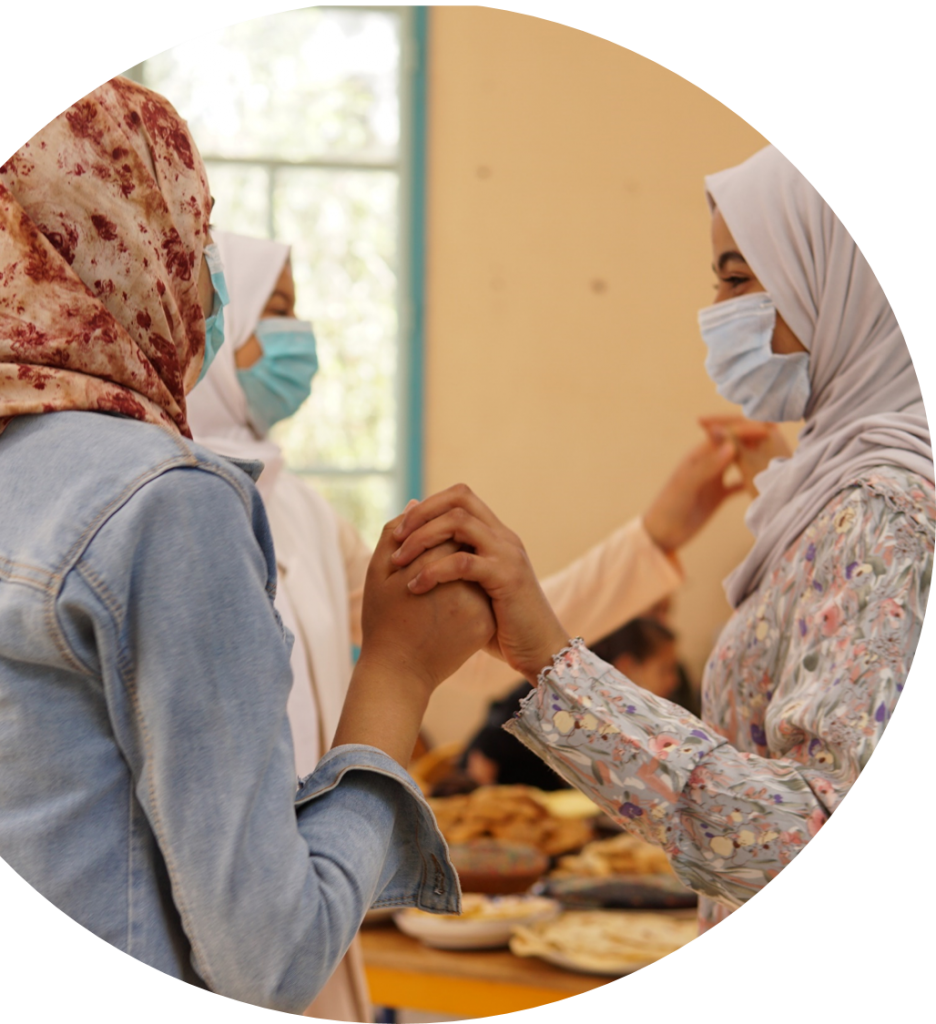 “Before Project Soar, I was afraid of standing in front of my classmates because I thought they’d laugh at me. After the PS workshops, I completely changed. I became more confident. I don’t care anymore about other people’s opinions or worry if they’ll laugh at me. Now, I raise my hand in class and participate often. When I began to speak in front of others, I realized people do truly listen to what I have to say. As soon as I began to recognize my value, others did too.” – Imane
“Before Project Soar, I was afraid of standing in front of my classmates because I thought they’d laugh at me. After the PS workshops, I completely changed. I became more confident. I don’t care anymore about other people’s opinions or worry if they’ll laugh at me. Now, I raise my hand in class and participate often. When I began to speak in front of others, I realized people do truly listen to what I have to say. As soon as I began to recognize my value, others did too.” – Imane
“Project Soar helped me to learn how to change negative things in my life to be positive. I am special because I can do anything.” – Fatima Zahra Louiza
“I have learned a lot of things from the whole program. I now know how to fight for my rights, how to be confident, and finally translate my thoughts into words in a speech.” – Jihane Hadri
“I used to think my ideas were worthless. I thought my classmates would laugh if I ever spoke. None of this turned out to be true. In fact, I have a strong voice and I am heard when I use it. I know people will listen to me because I have value.” — Aicha
About the Organization
Project Soar is a charitable organization that supports the next generation of the feminist movement in Morocco. It was founded in 2013 by Maryam Montague, an international development specialist and feminist social entrepreneur, to give back to the semi-rural Moroccan village where she lives. The organization has now grown to chapters nationwide. PS has provided 200,100+ hours of empowerment workshops for 3,543 teen girls and is active in 22 Moroccan chapters and five Ugandan chapters. The Project Soar Solution is the first of its kind.
PS is headquartered in a village on the outskirts of Marrakech, Morocco. PS currently works in 22 underserved locations across the Beni Mellal-Khenifra, Draa-Tafilalet, Fes-Meknes, Marrakech-Safi, Souss-Massa, Tanger-Tetouan-Al Hoceima, and Casablanca-Settat regions of Morocco. In 2019, PS crossed borders. With Ugandan partner Open Space Centre, the PSB empowerment program was piloted in five schools in Kampala, Uganda with great success. The program resulted in 12 trained PS facilitators, five PSB squads launched, 132 girls graduating from the empowerment program, and five GLCs launched.
Where They Work
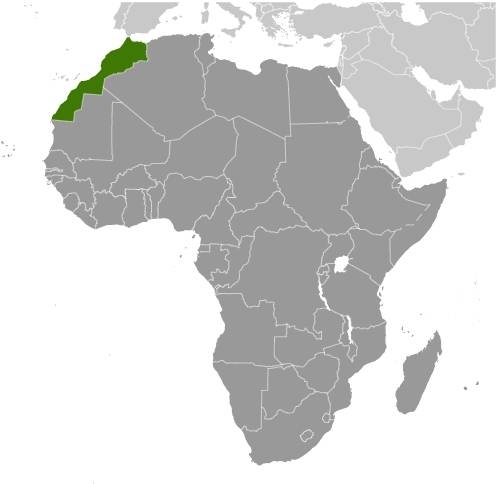
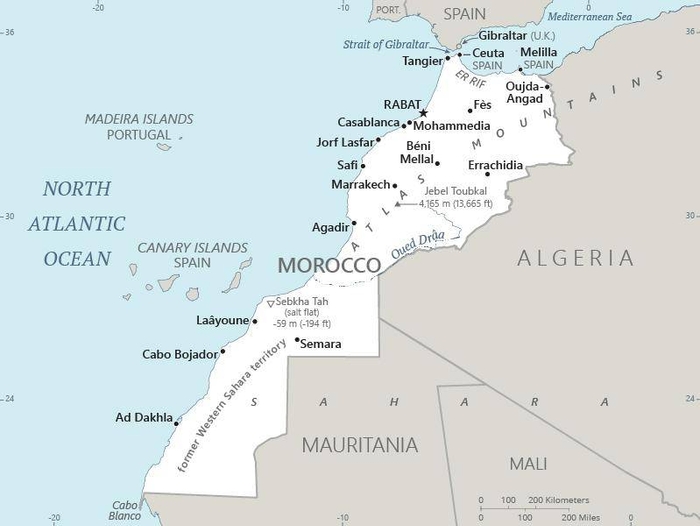
Morocco is a lower middle-income country in North Africa, population 36.6 million. About two-thirds live in urban areas such as the capital city of Rabat. Almost everyone has an Arab-Berber ethnic background. Apart from classical Arabic, the language of education, administration and media, the daily language in Morocco is Arabic dialect called Tamazight, which varies by region. Most Moroccans speak French and many speak Spanish and English. Islam is the official religion and virtually everyone is Muslim. Access to mosques and holy places is forbidden to non-Muslims. Seventy-four percent of the population is literate.
Morocco is currently experiencing a shift in demographics. The population is growing but at a declining rate, a reflection of people living longer and women having fewer children. Infant, child, and maternal mortality rates have all gone down, although a disparity exists between urban and rural areas. The fertility rate is less than half what it was in the 1980s, with an average of 2.2 children born in 2010 and five in the 1980s. This is due to higher contractive use (71 percent today), delayed marriage, and an increased level of female educational attainment. During the mid to late 1900s, Morocco became one of the world’s top emigration countries, with many people moving to Western Europe. In the 1970s and 1980s, many second generation Moroccans became naturalized citizens of their host countries.
A closer look at the effect of girls’ after-school clubs
After school groups and clubs are a way for girls to connect on a whole new level. These safe spaces usually mean “girls-only” meeting places and are an important way to help girls develop positive relationships and talk through issues that are otherwise often off limits at home. The key here is that these gathering places emphasize a sense of community versus individuality – which is often unlike what is experienced in Western culture.
Researchers have found that girls’ clubs that include a time for self-reflection and questioning the status quo help combat discriminatory and oppressive gender norms. This is especially the case when the questioning is led by trained female mentors who create a welcoming and safe environment for honest reflection. Researchers have found that girls exposed to this kind of environment experience positive changes in attitude and are more likely to report incidences of violence compared to girls who did not participate.
Opening up a dialogue about sensitive issues such as sex and relationships requires a skilled, female leader, preferably one who is an integral part of an already-established school or community group rather than an outsider who is unknown. Data confirms that giving girls a chance to rise out of abject conditions often starts with education – and that education often includes a safe space where a girl can open up about the inherent difficulties in her life.
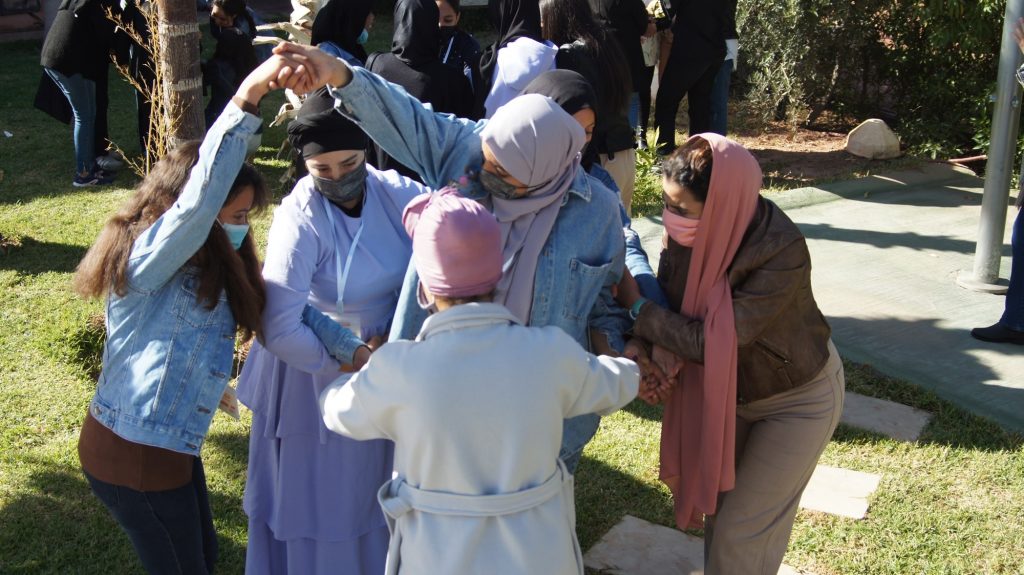
Source Materials
https://www.brookings.edu/wp-content/uploads/2016/07/whatworksingirlseducation1.pdf
https://www.devex.com/news/opinion-safe-spaces-can-unlock-girls-potential-when-we-get-it-right-93259
https://www.cia.gov/the-world-factbook/countries/morocco/
